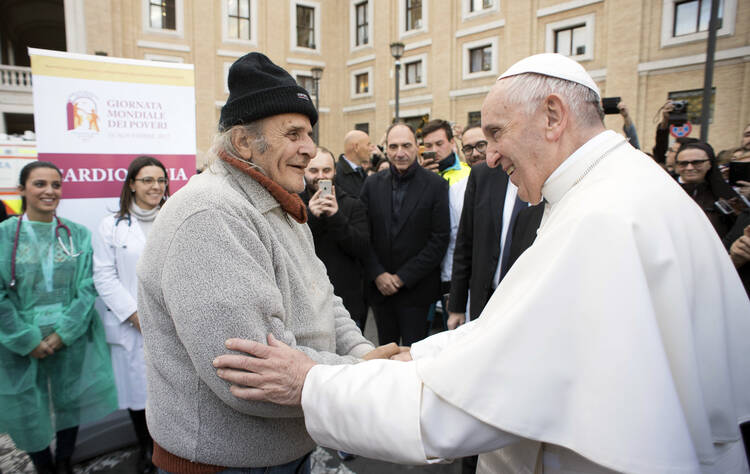Pope Francis on Thursday urged lawmakers to ensure that health care laws protect the "common good," decrying the fact that in many places only the privileged can afford sophisticated medical treatments.
The comments came as U.S. lawmakers in Washington, D.C., have been debating how to overhaul the nation's health insurance laws.
In a message to a medical association meeting at the Vatican, Francis expressed dismay at what he called a tendency toward growing inequality in health care. He said in wealthier countries, health care access risks being more dependent on people's money than on their need for treatment.
"Increasingly, sophisticated and costly treatment are available to ever more limited and privileged segments of the population, and this raises questions about the sustainability of health care delivery and about what might be called a systemic tendency toward growing inequality in health care," the pope said.
"This tendency is clearly visible at the global level, particularly when different countries are compared," Francis said. "But it is also present within the more wealthy countries, where access to health care risks being more dependent on individuals' economic resources than on their actual need for treatment."
Without citing any countries, Francis said health care laws must take a "broad and comprehensive view of what most effectively promotes the common good" in each situation, including looking out for society's most vulnerable people.
The Vatican meeting explored end-of-life issues and Francis repeated decades-old church teaching forbidding euthanasia.
He also reiterated Vatican teaching that says "not adopting, or else suspending, disproportionate measures, means avoiding overzealous treatment. From an ethical standpoint, it is completely different from euthanasia, which is always wrong."
In addressing end-of-life issues, the pope said, countries must "defend the fundamental equality whereby everyone is recognized under law as a human being."
Using his nearly five-year-old papacy to highlight the plight of the poor, Francis later made a surprise visit to an area near St. Peter's Basilica where volunteer doctors can give poor people medical exams as part of the church's first-ever World Day of the Poor, to be held Sunday.










